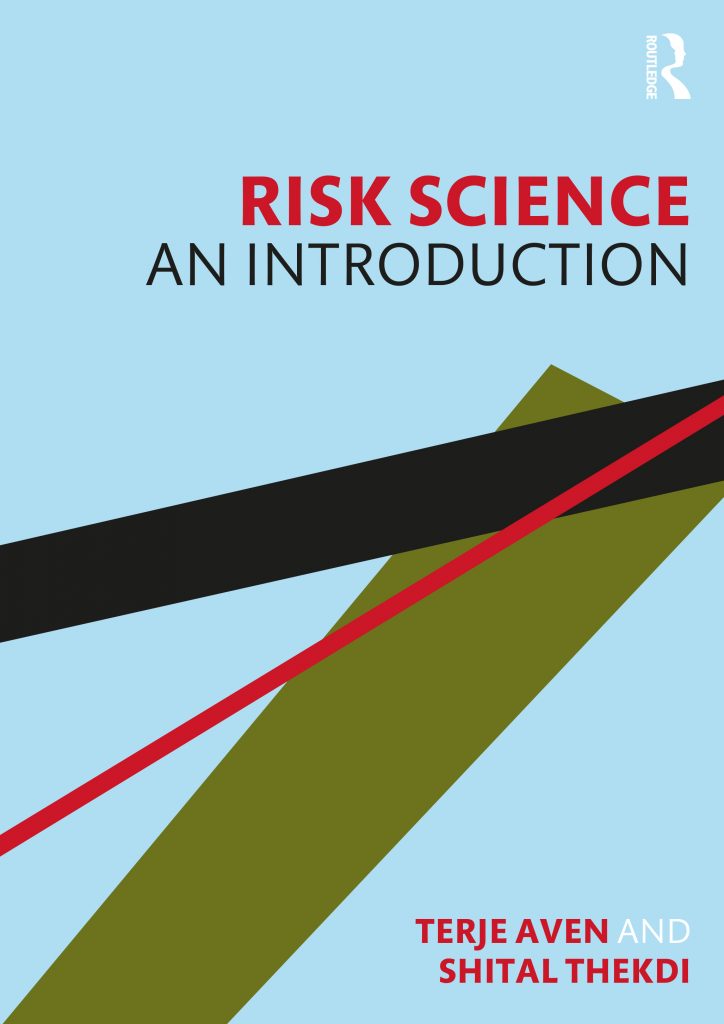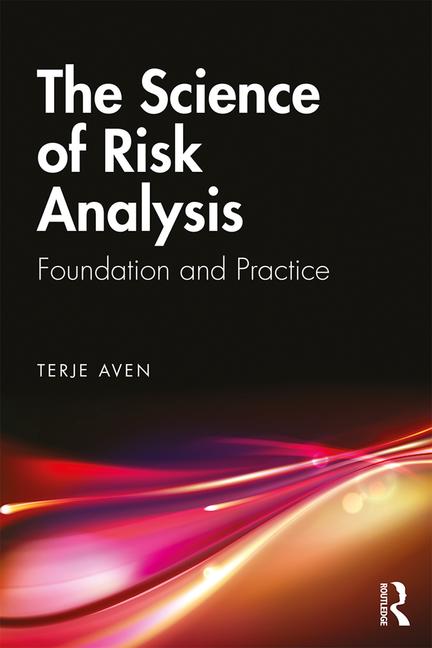

Foundational Issues in Risk Analysis
The risk field needs concepts, principles, theories and methods that give some sort of unity to the field and provide guidance on how to think when assessing, managing and communicating risk. To this end, we need further developments of such concepts, principles, theories and methods, scrutiny/clarification of existing ones, and reflections and discussions. This entails a broad set of initiatives and measures. The Foundational Issues in Risk Analysis Specialty Group (FRASG) represents an arena for generating them. It provides a scientific and technical forum for dialogue on all these issues and will promote initiatives reaching the diverse communities of risk analysts and researchers. It will guide the organization of workshops, conferences, and committees to study and reflect on key issues. A special responsibility is fostering the involvement of talented young researchers.
New book out: Risk Science

Risk science is becoming increasingly important as businesses, policymakers and public sector leaders are tasked with decision-making and investment using varying levels of knowledge and information. Risk Science: An Introduction explores the theory and practice of risk science, providing concepts and tools for understanding and acting under conditions of uncertainty.
The chapters in this work cover the fundamental concepts, principles, approaches, methods and models for how to understand, assess, communicate, manage and govern risk. These topics are presented and examined in a way which details how they relate, for example, how to characterize and communicate risk with particular emphasis on reflecting uncertainties; how to distinguish risk perception and professional risk judgments; how to assess risk and guide decision-makers, especially for cases involving large uncertainties and value differences; and how to integrate risk assessment with resilience-based strategies. The text provides a variety of examples and case studies that relate to highly visible and relevant issues facing risk academics, practitioners and non-risk leaders who must make risk-related decisions.
Presenting both the foundational and most recent advancements in the subject matter, this work particularly suits students of risk science courses at college and university level. The book also provides broader key reading for students and scholars in other domains, including business, engineering and public health.
Read more at the Routledge book webpage.
New book out: The Science of Risk Analysis

This book, written by the past SRA president and FRASG founding chair professor Terje Aven, provides a comprehensive demonstration of risk analysis as a distinct science covering risk understanding, assessment, perception, communication, management, governance and policy. It presents and discusses the key pillars of this science, and provides guidance on how to conduct high-quality risk analysis.
The Science of Risk Analysis seeks to strengthen risk analysis as a field and science by summarizing and extending current work on the topic. It presents the foundation for a distinct risk field and science based on recent research, and explains the difference between applied risk analysis (to provide risk knowledge and tackle risk problems in relation to for example medicine, engineering, business or climate change) and generic risk analysis (on concepts, theories, frameworks, approaches, principles, methods and models to understand, assess, characterise, communicate, manage and govern risk). The book clarifies and describes key risk science concepts, and builds on recent foundational work conducted by the Society for Risk Analysis in order to provide new perspectives on science and risk analysis. The topics covered are accompanied by cases and examples relating to current issues throughout.
This book is essential reading for risk analysis professionals, scientists, students and practitioners, and will also be of interest to scientists and practitioners from other fields who apply risk analysis in their work.
Read more at the Routledge book webpage.
High quality risk analysis examples
A template for and some examples of “High quality risk analysis examples” have been developed and can be found at the link above. These will be introduced at the FRASG lunch meeting at the 2019 Annual Meeting.
Short video introduction of Core Subjects of Risk Analysis
A short video introduction of the Core Subjects of Risk Analysis document, as seen through the eyes of Professor Terje Aven. The Core Subjects of Risk Analysis document itself may be downloaded here. The document covers five main topics: 1. Fundamentals; 2. Risk Assessment; 3. Risk Perception and Communication; 4. Risk Management and Governance; and 5. […]